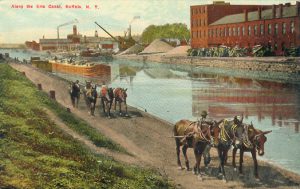 As many readers will already know, when I am not immersed in genealogy I am probably doing something that involves reading about, watching, studying, or writing about hockey. Such was the case this past weekend, as I traveled by car from Boston to Buffalo, New York, for the annual Combine – a grueling physical fitness testing day for hockey prospects in preparation for the NHL draft at the end of June. Continue reading Taking a road trip without stops
As many readers will already know, when I am not immersed in genealogy I am probably doing something that involves reading about, watching, studying, or writing about hockey. Such was the case this past weekend, as I traveled by car from Boston to Buffalo, New York, for the annual Combine – a grueling physical fitness testing day for hockey prospects in preparation for the NHL draft at the end of June. Continue reading Taking a road trip without stops
Category Archives: Genealogical Writing
Grassroots genealogy

When most people learn that I grew up in a town of three hundred people, they’re amazed. Some aren’t aware such small places still exist. Others want to know if we have electricity or modern appliances. (The answer to both questions is yes.) Inevitably, the same criticism arises: “I bet everyone knows everyone, and everything that they’re doing, too.”
I won’t deny that I knew everyone in the town when I lived there. In fact, I still know the majority of the population. Small towns have positive and negative aspects, as do cities. Everyone may know you by sight, and they may know more than you’d like them to about you and your family, whereas cities give you a sense of anonymity. I don’t recognize everyone I meet on the streets of Boston. The same can’t be said of Errol, New Hampshire. Continue reading Grassroots genealogy
Giving voice to the silenced
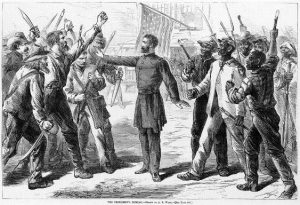
The Freedmen’s Bureau, officially known as the Bureau of Refugees, Freedmen, and Abandoned Lands, was created near the end of the Civil War to help those needing assistance following the war, namely newly-emancipated slaves and white refugees, as well as to manage and resettle lands abandoned by former owners. Continue reading Giving voice to the silenced
It’s in print, but is it true?
 I was recently asked a question that reinforces the point that we must look at original genealogical records, even when the published resources are ones that have been considered trustworthy. The question was about Isaiah Corbett, son of Joseph and Deborah, who was born in Mendon, Massachusetts. There are what appear to be two entries for this particular individual.
I was recently asked a question that reinforces the point that we must look at original genealogical records, even when the published resources are ones that have been considered trustworthy. The question was about Isaiah Corbett, son of Joseph and Deborah, who was born in Mendon, Massachusetts. There are what appear to be two entries for this particular individual.
As can be seen in the page from the NEHGS Database “Massachusetts Vital Records to 1850” showing Mendon Births, there is an Isaiah Corbett, son of Joseph and Deborah, born in Mendon on 26 June 1757. Two lines below this is a Josaiah, son of Joseph Jr., born in Mendon 26 June 1739. Continue reading It’s in print, but is it true?
Once in a blue moon
 Everyone who indulges in family history research understands the role that serendipity plays in successfully locating the ancestors we seek. I have recently come to understand what a confluence of serendipity and a blue moon can mean to my research, my focus on family stories, and a brick wall.
Everyone who indulges in family history research understands the role that serendipity plays in successfully locating the ancestors we seek. I have recently come to understand what a confluence of serendipity and a blue moon can mean to my research, my focus on family stories, and a brick wall.
A blue moon occurred on Saturday, 21 May 2016, a day I had arranged a first meeting with a distant Saunders-Cummings cousin to share family stories and data. Her arrival was preceded by an totally unexpected visit by another distant cousin in the same Cummings line. The day was full of family stories and photos. My patient husband managed to endure, but later commented that he had no family stories to tell. (Never a prophet in my own house!) Continue reading Once in a blue moon
“The dear old lady”

Boston, Saturday, 18 May 1861: These two or three clear days have helped Morris[2] a good deal – he drives often, and walks twice a day with me. I shall be known as “the woman that follows the drill” ere long, for he trudges after each company all over the parade ground [on Boston Common], and his military accoutrements attract no little attention to his poor pale face…
A report is very current to-day that Gen.l Beauregard[3] has died of wounds rec’d at the attack on Sumter. Somebody has heard somebody’s letter read, giving an acct. of his funeral!! Continue reading “The dear old lady”
The Babson brood
 The Babson Historical Association is preparing an updated Babson Genealogy for publication in 2017. The Babsons are unique in several ways.
The Babson Historical Association is preparing an updated Babson Genealogy for publication in 2017. The Babsons are unique in several ways.
First, they are one of the few families descended from a Great Migration matriarch who came to New England without a husband. Isabel Babson came to Salem in 1637 with her sons Richard and James. Her husband, Thomas Babson, had died in England. A married daughter – Joan, wife of John Collins – came with her husband shortly thereafter. Son Richard returned to England permanently and had four children we know of, but we have not traced any of the English descendants. Continue reading The Babson brood
The little black book
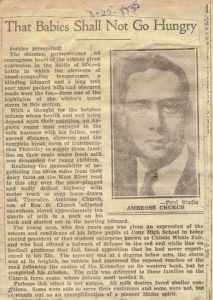 One of the most thoughtful gifts my son has ever given me is a small, black journal with blank pages which I carry with me every day. Kevin’s instructions to me at the time were to write down my memories as well as my family’s memories and stories. His good intentions became my inspiration and abiding interest, my focus in my family history research, and my obligation. Scribbling madly, I started asking for stories to preserve for our following generations.
One of the most thoughtful gifts my son has ever given me is a small, black journal with blank pages which I carry with me every day. Kevin’s instructions to me at the time were to write down my memories as well as my family’s memories and stories. His good intentions became my inspiration and abiding interest, my focus in my family history research, and my obligation. Scribbling madly, I started asking for stories to preserve for our following generations.
I soon understood that there is a significant difference between stories and memories. Memories are the foundation and basis for the stories they may become as time puts them in a different context. While some are skeletons in the making, our family stories give us a better understanding of our ancestors’ characters and their perspectives on their world, as well as some insight into their actions and motivations. Continue reading The little black book
The pen is mighty
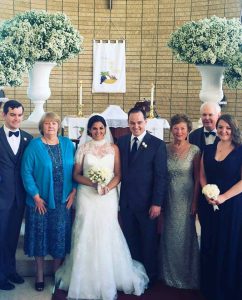 We’ve all been there: we’ve all looked for that one record that should exist – but does not. And why? Why did our ancestors do that to us? Why did they forget to file paperwork? or procrastinate when registering a deed? Why didn’t they know we would be searching for them years later?
We’ve all been there: we’ve all looked for that one record that should exist – but does not. And why? Why did our ancestors do that to us? Why did they forget to file paperwork? or procrastinate when registering a deed? Why didn’t they know we would be searching for them years later?
I am often annoyed with my ancestors – they failed to write wills, file taxes, and baptize their children. This was before my brother Andrew got married (or maybe I should say, tried to get married) in Puerto Rico: now I have a slightly different view. Continue reading The pen is mighty
“Practice what you preach”
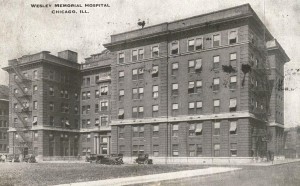 Earlier this week I was scrolling through my newsfeed and I saw a blog post where the author scolded herself and urged her readers to “practice what you preach.” I often think this, especially when I teach the first class of my three-part series on “Getting Started in Genealogy.” The crux of the first lecture is to work from the known to the unknown – not to skip ahead – and to record data using a chart or genealogical software (including sources examined). I encourage students to begin their genealogical journey with material from their own homes, to interview themselves, and to talk to relatives. Because who better to talk to, when learning about your family, than your own family members? Continue reading “Practice what you preach”
Earlier this week I was scrolling through my newsfeed and I saw a blog post where the author scolded herself and urged her readers to “practice what you preach.” I often think this, especially when I teach the first class of my three-part series on “Getting Started in Genealogy.” The crux of the first lecture is to work from the known to the unknown – not to skip ahead – and to record data using a chart or genealogical software (including sources examined). I encourage students to begin their genealogical journey with material from their own homes, to interview themselves, and to talk to relatives. Because who better to talk to, when learning about your family, than your own family members? Continue reading “Practice what you preach”